
NAOS Advanced Diploma in Psychosexual and Relationship Psychotherapy
Two-Year Modular Training Course 2026-2028
Thank you for your interest in this two-year, modular course dedicated to psychosexual and relationship psychotherapy.
We are now inviting applications for 2026/2027. Download the pdf application here or the word application here.
Click here for Full course brochure: Brochure 2 Year Adv Dipl in Psychosexual and Relationship Psychotherapy
 .
. 

Psychosexual and Relationship Psychotherapy
The NAOS Institute has been at the forefront of sex and relationship therapy training since 1989 when Bernd Leygraf and Judi Keshet-Orr collaborated in establishing the UK’s first Masters programme in this discipline. Together, Bernd and Judi (and faculty colleagues) have been consistently setting the standard in this work. We graduated around 2000 practitioners in over 40 countries, worldwide, having been “the leading training provider in the field” (External Examiner 2024) for many years.
In 2025, having admitted 50 new trainees to the London Diploma, this joint work of Judi and Bernd will come to a close.
Bernd, together with a refreshed faculty and course directorship team, with an emphasis on international expertise, will continue this work through the NAOS Institute from the end of 2025 onwards.
We invite applications to our revised two-year part time psychosexual and relationship psychotherapy training, to commence early in 2026. It takes place in-room in London (face to face) on Sundays and on-zoom on Mondays – or via remote access – once a month and trainees will commence clinical work under supervision at the end of the first year
For student unable to attend in-room due to compromised health issues or those with residency outside of the UK please contact us and we’ll find a way to accommodate you!
For a brief bio of Bernd see here.
The Two-Year NAOS Advanced Diploma in Psychosexual and Relationship Psychotherapy
This Diploma is accredited by COSRT as an advanced specialisation under the directorship of Bernd Leygraf, Dermot Kelly and Justyna Kulczyk-Lewinska. For the full faculty team see below.
This formational programme will offer trainees from a variety of backgrounds and disciplines the opportunity to explore and hone their existing psychotherapy skills. These are further enhanced by specialised psychosexual and relationship psychotherapy knowledge and expertise facilitated through classroom teaching and clinical placements. Alongside this all students are engaged in a reflective process group each time they meet.
It takes place in-room in London (face to face) on Sundays and on-zoom on Mondays once a month and trainees will commence clinical work under supervision at the end of the first year. We have made great efforts to draw on international academic, clinical or lived experience and therefore faculty members represent a wide range of cultures and backgrounds. Six are university professors, several have a doctorate, many are published.
You will need to allow approximately a day for clinical practice and supervision during year two. Private study, your own therapy, reading and essay preparation must also be factored into your time commitment.
We are working with around 60 clinical placement providers in the UK, Europe and as far as in Egypt – which may be undertaken online or in-person as long as 30% of your total clinical hours (150 hours) are face-to-face (45 hours).
A full student manual will be provided prior to the course commencement.
Course philosophy
In line with specialist ScoPED and revised COSRT psychosexual and relationship therapy competences the training is run at postgraduate level 7, hence all NAOS trainees, prior to starting this training, shall already be qualified generic practitioners (with a minimum of 2 years counselling, psychotherapy or psychology training).
The Advanced Diploma in Psychosexual and Relationship Psychotherapy is underpinned by a strong commitment to all communities and client populations our trainees serve with deepened sensitivity to a wide range of gender, sexuality and relationship expressions. We acknowledge the complexity and richness of human experience and the necessity of recognising and valuing the intersecting identities that clients bring to the therapeutic space. Our graduates are called to serve everyone, be they “mainstream” or “erotically marginalised”.
At the heart of our course is the intentional use of self and “beyond schoolism” (Clarkson 2010) – in that sense the programme is formational rather than “information” based.
We encourage a critical awareness of power dynamics, systemic inequalities, and the lived experiences of those who are privileged as well as those from marginalised communities.
Each module is carefully designed to align with this philosophy. Whether focusing on clinical assessment, the development of the therapeutic relationship, or addressing psychosexual concerns, students will be consistently encouraged to approach all material through the lens of joint cultural enquiry based on cultural humility intersectionality, and GSDR principles. The aim is to develop practitioners acutely aware of the social, cultural, and political contexts that shape the lives and relationships of their clients at the same time as being able to exercise clinical judgement.
Placements
There are three options to accrue the required 150 hrs of clinical practice:
- Through a clinical placement in the UK, Europe or further afield. 30% must be in person. We have in the region of 200 places, NHS, voluntary or third sector
- By sourcing your own placement at work or elsewhere. We audit all new placements
- Using your private practice, having been permitted to do so by your supervisor
Entry requirements
- Completed counselling, psychotherapy, counselling or clinical psychology qualification, no less than 2 years, 300 hrs
- Ability to study at level 7
- Professional reference
Assessment
- A ‘Three critical incidents’ reflective essay, 5000 words
- One research project 5000 words
- One case study 5000 words
- 3 supervisors reports, 1000 words reflective essay, non-assessed
Additional requirements:
- Student membership COSRT during the training
- Personal therapy
- 1.5 hrs per month supervision, during year 2, ratio 1:6
Application, interviewing and student selection process
- Applicants must complete the electronic application form (here)
- All applicants will be interviewed by one of the course directors and may be offered a space subject to references
- Upon receipt of the initial deposit of £500 the space is confirmed
Upon course completion
Graduates are immediately given access to registration with COSRT. Those who wish to progress to accreditation are required to complete another year
Course directors: Dermot Kelly, Justyna Kulczyk-Lewinska, Bernd Leygraf
Faculty: Prof Divine Charura, Ass Prof Charmaine Bourg, Ass Professor Marieke Dewitte, Dr Chris Cartner, Anastassis Spiliades, Jeremy Sachs, Saquib Ahmad, Dr Tiga-Rose Nercessian, Dr Waafa Eltantawy, Dr Stiofán Hatton, Jaqueline Morley, André Trichateau, Dr Robert Hudson, Prof Desa Markovic, Diane Hassall
Course consultant: Judi-Keshet-Orr
External Examinator: Dr Anastasios Argyropoulos
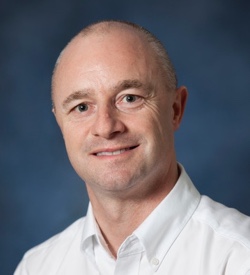
Dermot Kelly course director
Dermot is an accredited psychotherapist specialising in relationship and psychosexual therapy. Dermot has specialist training in child and adolescent psychotherapy and works in private practice in Dublin, Ireland. He is a supervisor and trainer.
Dermot He holds an MA in Creative Psychotherapy, a diploma in Creative Supervision, the London Diploma in Psychosexual and Relationship Therapy, and an Advanced Diploma in Relationship Psychotherapy.
Dermot has experience working in education at the primary, secondary and third levels, and he has worked in education in Ireland and the UK.
Previously, Dermot was on a child safeguarding advisory panel for a roman catholic church religious order in Ireland, advising on child safeguarding policy and case management. As an extension of this safeguarding role, Dermot has worked therapeutically with those who sexually offend against children.
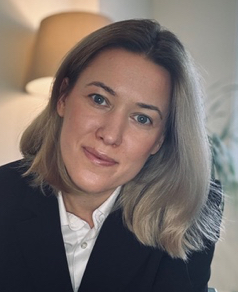
Justyna Kulczyk-Lewinska course director
Justyna Kulczyk-Lewińska is a COSRT-accredited psychosexual and relationship psychotherapist and the founder of JKL Therapy Centre. She specialises in working with individuals, couples and diverse relationships facing a range of psychosexual and relationship challenges, including intimacy difficulties, sexual dysfunctions, infidelity, and trauma.
Originally from Eastern Europe, Justyna brings a deep understanding of how cultural backgrounds shape relationships and sexuality. She works relationally, integrating trauma-informed approaches with a focus on neurodivergence and intersectional identities. Her inclusive and sensitive therapeutic style ensures that clients feel supported in exploring the complexities of their experiences within the context of their unique backgrounds.
In addition to her clinical practice, Justyna has extensive experience in sexual health, having served as Lead Sexual Health & HIV Adviser in the NHS and as a psychosexual therapist in hospital and community settings. She is also a clinical supervisor, providing mentorship and guidance to both trainee and qualified therapists.

Bernd Leygraf course director
Bernd Leygraf co-founded a number of organisations (London Men’s Forum, UK Standing Conference on Sexual Abuse of Men, the Centre for Personal and Professional Development, the Whittington Hospital Psychotherapy Clinic, the Hungarian Gestalt Association, NAOS Institute). He co-authored with Judi Keshet-Orr the first MSc in Humanistic Psychotherapy and the first Masters programme in Psychosexual & Relationship Therapy in the UK. He also authored or co-authored, as well as led, several masters programmes in the UK, primarily at South Bank University, Middlesex University, Westminster and the University of Surrey. He was external examiner to various universities in the UK.
A former Chair of the Professional Standards and Accreditation Board at the European Association for Counselling, and Ethics Committee of COSRT, Bernd works currently with trainees, from over 40 countries. he is familiar with and interested in working with issues of cultural difference. At this moment Bernd is working on a book titled: Developing Cultural Sensitivity in Psychosexual Therapy: Global Perspectives, that will be published in 2026
Bernd is proud to have supported – alongside Judi Keshet-Orr – a significant number of sex and couples therapists in shaping their own professional identities and careers, both in the UK and further afield. Some of them have moved into offering specialist sex addiction clinics; others are now trainers in this field in their own right.
Clinically speaking, from 2017 Bernd focuses on working with celebrity clients and on men in leadership, both nationally and globally.
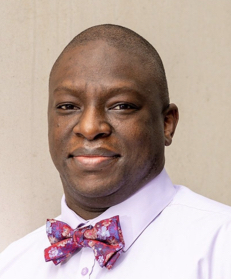
Prof Divine Charura faculty member
Divine Charura is a Professor of Counselling Psychology. He is a counselling psychologist and registered as a practitioner psychologist with the Health and Care Professions Council in England. Divine is also an Honorary Fellow of the United Kingdom Council for Psychotherapy (UKCP) and an adult psychotherapist.
As a practitioner psychologist, psychotherapist and researcher, Divine’s work focuses on psych traumatology and the impact of trauma across the lifespan. Divine has co-authored and edited numerous books in counselling, psychology, and psychotherapy. These include Love and Therapy: In relationship (co-edited with Stephen Paul])and with Colin Lago has co-edited the following books: The Person-Centred Counselling and Psychotherapy Handbook: Origins, Developments and Current Applications, (2016) and recently: Black Identities + White therapies: Race respect and diversity, (2021).

Ass Prof Charmaine Borg faculty member
Dr. Charmaine Borg is an experimental psychologist and psychosexologist with a Master’s in Clinical Mental Health Sciences from King’s College London and a PhD from the University of Groningen, where she continues her work in the psychophysiological Sex Lab. Her research explores the complex interplay between sexual arousal, disgust, pain, and intimacy, with a strong focus on evidence-based interventions in sexual well-being and clinical sexology. At the Sex Lab, she leads innovative studies that deepen our understanding of emotional and physiological responses in intimacy, aiming to enhance sexual experiences, pleasure, and connection—especially in long-term relationships.
With expertise in Cognitive Behavioral Therapy and Sexual Medicine, Dr. Borg bridges academic and applied research, developing interventions that foster intimacy, alleviate pain, and improve sleep. A recognized leader in the field, she co-designs exams for the European Certificate in Psychosexology (ECPS) and the MJCSM certification in Sexual Medicine. She is also actively involved in European and international societies, serving as an executive board member of the European Federation of Sexology and co-founder of the International Sexual Medicine Research network (ISMR). Her work has been featured in Scientific American, Forbes, and Nature Reviews Urology, shaping global discussions on sexual health and well-being.

Ass Professor Marieke Dewitte faculty member
Marieke Dewitte is a clinical psychologist-sexologist who had her training in Belgium and The Netherlands and completed her PhD at Ghent University, Belgium. She currently works as associate professor at the Department of Clinical Psychological Science of the University of Maastricht, The Netherlands. She teaches several courses and workshops on sexual responding at the university and in post-academic sexology trainings. Her research involves psychophysiological studies on basic mechanisms of sexual functioning, dyadic interactions between partners, and attachment in relation to sexual responding. Her clinical (research) focus is on female genital pain. She also worked as sex therapist at Ghent University Hospital and now at Maastricht University Hospital. She is editor-in-chief of the Dutch Journal of Sexology, associate editor of The Journal of Sex Research and Secretary General of ESSM.
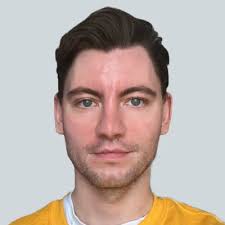
Dr Chris Cartner faculty member
Chris is a Psychologist specialising in trauma, sexual health, Chemsex and LGBT+ affirmative therapy.
Chris comes from a background in both the NHS and private settings, having worked in sexual health, addictions, general counselling services and dental psychology (maxillofacial trauma and orthognathic psychology). He currently works in the NHS in a sexual health clinic in Kingston and continues to offer private couples and individual psychotherapy both online and in his office in Earl’s Court as well as training and clinical supervision to other therapists.
His research and academic experience explores men’s engagement with Chemsex, with a publication in the role of mentalisation in understanding and working with those engaging in Chemsex, and Doctoral research looking at Chemsex abstainees reflections on sexual experiences.
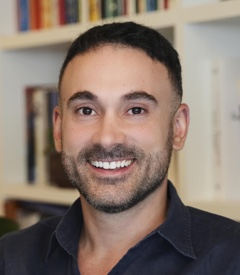
Anastassis Spiliades faculty member
Anastassis is a consultant systemic and family psychotherapist (UK) and a psychologist (registered in Greece). He works both with individuals and systems / relationships across the lifespan, having previously held senior clinical and supervisory / training roles at the Maudsley Hospital, Royal Free Hospital, Great Ormond Street Hospital and the Tavistock Clinic. At the Tavistock, Anastassis established and led the first Family Therapy Service in the NHS for gender-questioning youth. Anastassis specialises in embodied distress, including gender-related distress in youth and adulthood. He continues to train and supervise frontline NHS staff on the subject, having recently co-led the induction training for the new NHS Children and Young People Gender Hubs in collaboration with the Academy of Medical Royal Colleges in the UK. He is currently co-authoring a book on developmentally-informed therapy for gender-related distress in children and is advocating for an evidence-based approach to treating gender-related distress. Finally he works as a visiting lecturer at King’s College London and currently completing his doctorate on female embodied distress.

Jeremy Sachs faculty member
Jeremy Sachs is an integrative and Narrative Exposure psychotherapist and lecturer from London, now based in Glasgow. He has worked across adolescent HIV care, homelessness, long-term health conditions, and with survivors of sexual abuse. He writes for many industry journals and magazines and his first book, An Intersectional Guide for Male Survivors of Sexual Abuse and their Allies: Masculinity Reconnected, is out July 2025.

Saquib Ahmad faculty member
Saquib Ahmad is a Consultant Psychotherapist, triple-accredited in Cognitive Behavioural Therapy (CBT), EMDR, and by professional bodies including BABCP, EABCT, and EMDR UK & Ireland. With a specialist focus on complex trauma, GSRD (Gender, Sexuality, and Relationship Diversity) therapy, and cross-cultural psychotherapy, Saquib brings over a decade of experience working with LGBTQIA+ individuals, refugee and asylum seeker populations, and those from ethnic and religious minority backgrounds.
He has worked extensively in the UK’s National Health Service (NHS), notably serving as a senior clinician in the Grenfell Wellbeing Service following the 2017 Grenfell Tower fire. His commitment to trauma-informed care and culturally competent practice has led him to present his clinical and research work at leading international CBT and EMDR conferences.
Saquib is also a published writer and contributed a chapter to Pink Therapy’s ground-breaking text on Queer-affirming psychotherapy. His chapter, “Exploring the Impact of Religious Background or Identity on LGBTQ People”, examines the psychological impact of navigating identity conflicts for Queer individuals raised within religious traditions, offering practical, compassionate approaches for clinicians.
A passionate Queer activist, Saquib is the founder of Fighting Fear, a global mental health platform by Queer people for Queer people.
In addition to his work at Fighting Fear, Saquib is a guest lecturer at Oxford University, where he teaches LGBTQIA+ inclusivity as part of the Psychology Clinical Doctorate programme. Through this work, he continues to advocate for decolonising mental health, expanding access to affirming care, and uplifting marginalised voices, working closely with NGOs, private sector organisations, and health services to drive systemic change.

Dr Tiga-Rose Nercessian faculty member
Tiga-Rose Nercessian (she/her) is a multi-neurodivergent, accredited Sex & Relationship Psychotherapist. She specialises in working with neurodivergent, queer, kinky, and non-monogamous adults. She’s also a researcher, writer, and specialist trainer for a variety of institutions, primarily training other therapists in how to better support neurodivergent adults. Tiga-Rose has also featured as a guest speaker on a range of podcasts and panels.
Tiga-Rose describes herself as cisqueer and gender agnostic/ambivalent. She acknowledges that she is both white-passing and multicultural. She has diagnoses of Autism Spectrum Disorder (ASD), hyperactive-impulsive ADHD, and Pathological Demand Avoidance (PDA). Tiga-Rose acknowledges that some of these identities accrue privileges that she hasn’t earned, and are often invisible to those who hold them, while simultaneously creating barriers for those who don’t.
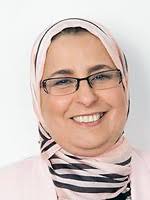
Dr Waafa Eltantawy faculty member
Dr Wafaa Eltantawy, is delighted to join LDPRT as associate director for the Middle East course. She is a specialist in Sexual and Reproductive health She is a Fellow of the Faculty of Sexual & Reproductive Healthcare, Royal College of Obstetricians and Gynaecologists. WAFAA is a COSRT Accredited Psychosexual and Relationship Therapist and Sex Addiction Therapist. Dr Wafaa Eltantawy is the lead for the Psychosexual clinic in Lewisham and Greenwich NHS Trust, London, UK.SHE is based in London, UK AND also HAS a clinic in Egypt. She works with clients from different backgrounds and cultures, the Middle East and around the world.

Dr Stiofán Hatton faculty member
Stiofán is a medical doctor working in sexual health and HIV medicine in London. He has a passionate interest in medical education and has lectured at two Irish medical schools (University College Dublin and The Royal College of Surgeons of Ireland), earning multiple teaching awards as a medical tutor. Stiofán’s interest in sexual health and HIV medicine is rooted in his affinity for working with marginalised groups and with people suffering the negative consequences of shame and stigma. He has taught “sex ed” to hundreds of young people as part of the highly commended Debunking The Myths programme at the Rotunda Hospital in Dublin. He was also featured as invited speaker at the Royal College of Psychiatrists on one of his special interest areas of “Chemsex”.
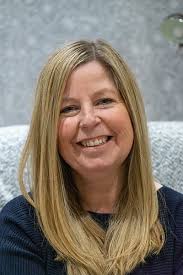
Jaqueline Morley faculty member
Jacqueline is a registered Psychosexual and Relationship Psychotherapist. She is also an accredited therapist with the National Counselling and Psychotherapy Society (NCPS). She runs an established private practice in Essex.
Jacqueline holds diplomas from the London Diploma in Psychosexual and Relationship Therapy (graduated in 2025), the NAOS Advanced Diploma in Couples Therapy, and the Advanced Diploma in Contemporary Relationship Psychotherapy from Affinity Psychotherapy Academy, London.
Over the past few years, Jacqueline has specialised in providing psychotherapy for couples and relationships within her practice. She also holds an MA in Social Work. Her professional background strongly informs her warm, integrative approach as a psychotherapist, which is firmly rooted in systemic thinking.
Jacqueline has worked for several local authorities, including Southend, Essex, and various London boroughs. She has experience working across a variety of children’s services teams, including Fostering and Adoption, Children in Care, Children with Disabilities, and Court and Child Protection Teams.
Additionally, Jacqueline holds a BA (Hons) in Special Education Studies, accredited by the University of Essex. She has worked in several schools and colleges, supporting young people and adults with profound and multiple learning disabilities. She has a keen interest in developing her psychosexual practice to specialise in working with couples and relationships where one or more partners experience chronic illness or disability.

André Trichateau faculty member
Andre is a Psychodynamic Psychotherapist as well as a Sex and Relationship Therapist having graduated from LDPRT. He trained with the Westminster Pastoral Foundation, the BPA, Imperial College, the C. G. Jung Institute and the Institute for Group Analysis.
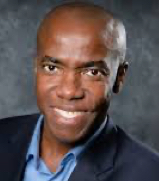
Dr Robert Hudson faculty member
Dr Robert Hudson is a UKCP registered psychotherapist, sex and relationship therapist, and certified Sex Addiction & Trauma Specialist (CSAT-S Supervisor). He is a member of the British Association of Counselling and Psychotherapy (MBACP), an accredited member of the College of Sexual and Relationship Therapy (COSRT), and a trained EMDR trauma therapist.
Robert specialises in working with individuals, couples, and groups on issues including compulsive sexual behaviour, intimacy, and relational difficulties. He has designed and facilitated treatment groups, workshops, and retreats, and is particularly known for his work with couples navigating the challenges of trust, betrayal, and recovery. His integrative approach combines humanistic, psychodynamic, and cognitive behavioural models, offering a warm, collaborative, and structured style of therapy.
Alongside his clinical practice, Robert provides clinical supervision to therapists and delivers training and teaching in the fields of compulsive sexual behaviour, trauma, and relationship therapy. He is currently preparing a book and a number of articles for publication, further contributing to research and best practice in this specialist field.
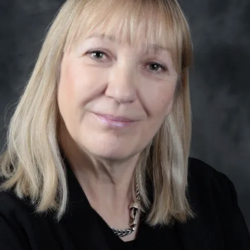
Prof Desa Markovic faculty member
Desa Markovic is a UKCP registered systemic psychotherapist and supervisor, and COSRT accredited senior psychosexual therapist and supervisor. She is a Professor in Systemic Psychotherapy and was Head of Psychotherapy Programmes at Regent’s University London between 2009-2020. She worked as a clinician in mental health hospitals, and held senior academic posts on post-graduate psychotherapy programmes at several training institutes, including Relate, Kensington Consultation Centre, Porterbrook Clinic in Sheffield, and Institute of Family Therapy, London. In 2014, she was awarded fellowship from the Sheffield Society for the Study of Sexuality and Relationships for her contribution to sexology. She has been promoting the ways and possibilities of integration between systemic psychotherapy and sexology and to this end, she has developed a Multidimensional Open Systemic Sex Therapy model that integrates these two approaches. She has written papers and chapters on this topic, as well as a book Working with Sexual Issues in Psychotherapy: A Practical Guide Using a Systemic Social Constructionist Framework, published in 2017 by Palgrave Macmillan. Desa has given lectures and presentations on her work at numerous national and international conferences, such as the North American Society for Psychotherapy Research, Society for Exploration of Psychotherapy Integration, European Society for Psychotherapy Research, European Federation of Sexology, European Family Therapy Association, and the World Association of Sexual Health.
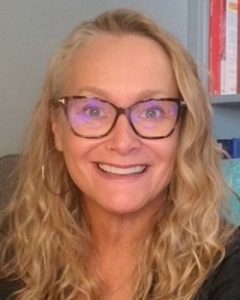
Diane Hassall faculty member
Diane is an experienced integrative psychotherapist who specialises in relationship and psychosexual therapy. Much of her work is with people exploring or wanting to commit to gender,sexual or relationship diversity (GSRD), including gender or sexual identity, gender transition, BDSM and kink, and polyamory, non-monogamy and other types of relationships. She also works with people in trans-cultural, -racial and -religious relationships.
She is a graduate of the London Diploma in Psychosexual and RelationshipTherapy (LDPRT).
Di leads a therapy practice, Your Time To Talk. She has previously worked with Relate, Mind, Ealing Abbey Counselling Service and the As You Are Therapy Centre in Brighton.
Di’s previous career was in HR, learning and development, communications and change management. People and relationships have always been her passion, so it was no surprise to those who know her when she became a psychotherapist!

Judi Keshet-Orr Course consultant
Judi is a Consultant Psychosexual & Relationship Psychotherapist. She has over 40 years of clinical, teaching, mentoring and supervisory experience and has been awarded Fellowship of both COSRT and the National Council of Psychotherapists.
Following a career in social work and as a joint investigation training officer for statutory and non-statutory agencies Judi trained as a psychotherapist, group psychotherapist and facilitator. Her initial training in psychotherapy was at the University of Surrey with John Heron and James Kilty. Judi originally trained as a psychosexual and relationship psychotherapist at St. George’s Hospital, London. She has also trained in Family Mediation.
Judi was the first person in the UK to be awarded an MSc in Psychosexual and Relationship Therapy. Judi holds UKCP accreditation and is a Senior Accredited Member of COSRT as well as holding COSRT supervisor recognition. Judi was awarded Fellowship status with the National Counselling Society (NCS) in 2014.
Alongside Anita Sullivan, Judi has provided a variety of short and long training events for over 25 years both at undergraduate and post graduate levels. For five years Judi and Anita ran the highly successful London Diploma. From 2012 Bernd Leygraf has co-directed with Judi following Anita’s semi-retirement from the profession.
Judi has co-founded several successful organisations and training programmes, these include The Incest Intervention Project, CPPD, and the COSRT-approved course at the Whittington Hospital NHS Trust. With Bernd Leygraf she co-authored and led the MSc in Humanistic Psychotherapy and Psychosexual & Relationship Psychotherapy courses. She also co-authored and led the Master’s programmes at London’s South Bank and Middlesex Universities in psychotherapy and psychosexual therapy. For many years Judi was actively involved with BASRT (now COSRT) and AHPP (UKCP member organisations).
Judi has contributed to several academic journals, published a number of articles, spoken on radio and appeared on television both in the UK and overseas. She is a regular conference speaker and workshop facilitator in the UK and abroad whilst also maintaining links with a major international organisational development consultancy working in developing countries. Her latest book is titled ‘In the Footsteps of the Fathers – psychosexual therapy with the Orthodox Jewish community – an overview from the therapists chair ‘ .
Judi leads a busy private practice in London. For eight years she was the Clinical Director and Lead of Ealing Abbey Counselling Service, one of the largest counselling charities in London. Judi is also a co-founder of the Relationship Resolve conciliation and conflict resolution service.
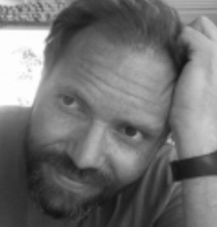
Dr Anastasios Argyropoulos External Examiner
Anastasios is a consultant counselling psychologist, psychotherapist and organisational consultant. Having completed his undergraduate studies (BSc.) in Psychology more than 20 years ago, he went on to receive further training in the UK and abroad up to doctoral level (PgDip., MSc.,Pg.Cert.,PsychD.).The clinical, philosophical and symbolic/abstract working models he employs, as well as his diverse training and life-experiences inform his personal integrative/relational approach to practice and teaching.
Anastasios has extensive experience having worked in varied settings, holding roles indifferent institutions including public and private clinics, privately held companies, statutory bodies and charities. He has been contracted in academia and by other organisations to consult on behavioural dynamics, change management and organisational development.
Anastasios is interested in the wider application of philosophical, psychological and psychotherapeutic ideas in society and sees his professional engagements as a way to continuously hone his skills, with and through others, and built meaningful relationships. He currently runs a successful private practice, collaborating with an established central London clinic, supervises the work of other colleagues, and tutors occasionally on various training programmes. He is a member of the British Association for Counselling and Psychotherapy and a chartered member of the British Psychological Society.
Fees
Fees year 1: £ 3,950
Fees year 2: £ 3,950
Payable:
Fees are incl 20% VAT. We require a deposit of £500 to secure your place, followed by 20 monthly instalments of £370.00. Applicants who wish to pay for the 2 years as one-off payment, are offered a 2.5% reduction in fees.
Indicative Course Content
Year One
- Overview of organic and non-organic presentations
- The couple and other relationships
- Treatment options and approaches
- Models of assessment and history taking
- Formulation and treatment plans – the integration of behavioural techniques within psychosexual and relationship psychotherapy
- Consideration of MoU2 and GSRD relating to PRT assessment
- Trauma (including developmental and minority stress/trauma)
- Differentiation; David Schnach with couples
- Imago – Harville Hendrix
- Risk assessment : Out of control sexual behaviours and relationship violence
- Erotic transference
- Working with survivors of sexual abuse
- Couples in conflict
- Working with diversity/trans presentations , including men, women and non binary expressions
Year Two
- Ethical and legal practice
- Inclusivity and cultural sensitivity
- Solution-focused approaches to include CBT and Sue Johnson EFT
- T.A. with couples
- Developmental couples therapy: The work of Bader-Pearson
- Psychiatric presentations and co-morbid psychiatric, medical and psychosocial conditions
- STI’s and anatomy of aroual
- “Affairs” and non-consensual non monogamy
- Heterosexuality, homosexuality, bisexuality and LGBTIQ+ relationship models vs. dual intimate systems
- Alternative sexual and relationship presentations
- Critical review
- Practice management
The course team regularly evaluates the content of the course and in line with new research, thinking, awareness and protocols and adjusts and adds to the curriculum as required.
Dates
Sundays are in-room, Ealing, 9.30am until 4.30pm
Mondays are online, 5pm – 9.30pm, ending with 1.5 hour Reflective Group
2026 Year 1
Module 1
February 15th Sunday in-room
February 16th Monday online
Module 2
March 15th Sunday in-room
March 16th Monday online
Module 3
April 12th Sunday in-room
April 13th Monday online
Module 4
May 17th Sunday in-room
May 18th Monday online
Module 5
June 14th Sunday in-room
June 15th Monday online
Module 6
June 28th Sunday online
September 7th Monday online
Module 7
October 4th Sunday in-room
October 5th Monday online
Module 8
November 8th Sunday in-room
November 9th Monday online
Module 9
December 6th Sunday in-room
December 7th Monday online
2027 Year 2
Module 1
February 21st Sunday in-room
February 22nd Monday online
Module 2
March 21st Sunday in-room
March 22nd Monday online
Module 3
April 25th Sunday in-room
April 26th Monday online
Module 4
May 23rd Sunday in-room
May 24th Monday online
Module 5
June 27th Sunday in-room
June 28th Monday online
Module 6
September 12th Sunday in-room
September 13th Monday online
Module 7
October 10th Sunday in-room
October 11th Monday online
Module 8
November 14th Sunday in-room
November 15th Monday online
Module 9
December 12th Sunday in-room
December 13th Monday online
2024
“The supportive environment and dedicated, high-calibre faculty made it a worthwhile step in my professional development.”
2024
“I was truly moved by this course. It was absolutely worth the journey to London once a month, just to be part of something so enriching—meeting incredible people and presenters that uplift and inspire. The course gave me exactly what I wanted: fresh, transformative perspectives on relationship work—whether with individuals, couples, or multiple partners—opening my experience to new depths of working.”
2024
“During my time on the Advanced Diploma, I valued the depth of knowledge and experience of the tutors. Moreover, as trainees, we also gained valuable insights from each other’s different therapy modalities. It’s both an experiential, challenging, enriching and enjoyable course and I would recommend it to anyone considering to begin or develop their journey as a relationship therapist.”
2023
“I was inspired, stimulated, and stretched by this course and would recommend it highly to anyone seeking to develop their awareness and skills in working with relationship clients.”
2023
“NAOS has elevated my proficiency in couple/relationship therapy to an advanced level, seamlessly blending expertise with invaluable insights from the tutors. It’s more than a course; it’s the catalyst that has enriched my therapeutic skills in working with couples and relationships.”
2023
“A one-of-a-kind course, unveiling a deep understanding of the intricate processes and dynamics between couples, while imparting a rich array of tools to be wielded in the art of couples therapy.”
2022
“Your course is a deeply transformative experience on a personal level.”
2022
“I especially enjoyed the group was the most diverse group I have ever been in. This was so refreshing for me as I am also a person with non-British background. The positivity and high standards both in the group and our teachers gave me the confidence and the passion to work with couples and the same time staying humble and recognising that there is always so much more to learn.”
The NAOS Institute , together with the London Diploma has trained psychosexual and relationship therapists to the highest standards for over three decades now and we are proud to say that more than two thousand of the currently accredited UK clinicians are graduates of our courses. Our graduates therefore constitute a significant proportion of psychosexual and relationship therapists in the UK alone.
In 1990, with the support of Prof Albert Singer, Judi Keshet-Orr and Bernd Leygraf collaborated to establish the largest psychosexual and relationship clinic in Europe, staffed by our own trainees, within the NHS. Together, they authored the UK’s first Masters programme in Psychosexual and Relationship Therapy and the first and only one leaning into a Humanistic-Integrative philosophy. Over the past 85 years or so, sexual and relationship therapy has developed beyond the original parameters of the work. With this course, we have moved the field from the more traditional medical approaches to sexual problems, to working to encompass issues which impact on the client’s total environment.
This includes attention to: relationship and gender status, family, professional, cultural influences, and trans-generational issues. In psychosexual work, the presenting issue may be a specific sexual or relationship difficulty which the therapist will attend to; it will also address the way in which this difficulty affects the client’s concept of sexuality and relationships (or absence of these) in their lives.
The sexual landscape has changed in many ways in the last 30 years, in terms of gender, sexuality and culture. Psychosexual and relationship therapy has evolved alongside these changes and this has been embraced by the course.
We wholly endorse MoU2. Alongside our accrediting bodies we agree that ethical practice requires the practitioner to have adequate knowledge and understanding of gender and sexual diversity and cultural differences, and to be free from any agenda that favours one gender identity or sexual orientation as preferable over other gender and sexual diversities.
We encourage our students to acknowledge the broad spectrum of sexual orientations and gender identities and gender expressions – not all white, middle-class and Anglophone, and to update their knowledge and practice in line with these principles.